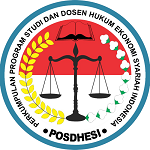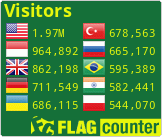PRODUCTIVE ZAKAT AND WOMEN'S EMPOWERMENT FOR INCLUSIVE ECONOMY: SHARIA ECONOMIC LAW AND SOCIAL FIQH IN INDONESIA
DOI:
https://doi.org/10.32332/muamalah.v3i1.9248Keywords:
Productive Zakat, Women's Empowerment, Sharia Economic Law, Social FiqhAbstract
Women significantly contribute to the national economy through their Micro, Small, and Medium Enterprises (MSMEs) roles. However, they face inadequate support from government and private sectors in accessing formal financial services. This research addresses the gap in gender-inclusive financial support by exploring the potential of productive Zakat within the framework of Sharia Economic Law in Indonesia and social fiqh. The study aims to evaluate how productive Zakat can mitigate gender inequality and promote economic inclusion for women. A qualitative methodology with a normative approach was employed to address this issue, utilizing the social fiqh paradigm for analysis. As a legal product, the findings reveal that fiqh evolves with societal changes. Social realities, such as the discrimination women face in accessing financial resources, necessitate the adaptive allocation of Zakat. Precisely, dedicating Zakat to women reflects their unique economic challenges and highlights the need for specialized management structures to distribute productive Zakat effectively. This study contributes to the existing literature by demonstrating the practical application of Sharia Economic Law in Indonesia and social fiqh in addressing contemporary gender disparities in economic participation. The novelty lies in proposing a structured and professional management system for productive Zakat to empower women, fostering economic inclusivity.
Downloads
References
Arifin, Samsul. “Kesetaraan Gender Dan Pertumbuhan Ekonomi Di Indonesia.” Kajian 23, no. 1 (2018): 27–41.
Arikunto, Suharsimi. Prosedur Penelitian Suatu Pendekatan Praktek. Jakarta: PT. Rineka Cipta, 2002.
Baznas, Pusat Kajian Strategis. Panduan Pengelolaan Zakat, Infak, Dan Sedekah Berbasis Pesantren, 2021.
Dewi, Yusriani Sapta. “Peran Perempuan Dalam Pembangunan Berkelanjutan Woman in Sustinable Development Volume XII Nomor 02 September 2011 ISSN 1411-1829 Volume XII Nomor 02 September 2011 ISSN 1411-1829” XII, no. September (2011): 61–64.
Faizin, Mu'adil. “Hak Asasi Manusia Dalam Pemikiran Yusuf Qaradhawi.” Al-Mazahib 5, no. 1 (June 2017). http://ejournal.uin-suka.ac.id/syariah/almazahib/article/view/1388.
———. Hukum Perikatan Islam Di Indonesia. Kolaborasi Pustaka Warga, 2022. https://books.google.co.id/books?id=ILXLDwAAQBAJ.
Fitria, Sela Nur. “Analisis Pendayagunaan Dana Zakat Produktif Dalam Peningkatan Pendapatan Mustahik.” Skripsi UIN Raden Intan Lampung, 2017.
Halimah Anjani, Nur. “Potensi Dan Tantangan Wirausaha Perempuan Dalam Perekonomian Indonesia,” 2021.
Hariyono, Tri. “Partisipasi Perempuan Desa Karangsari Dalam Mewujudkan Pembangunan Inklusif.” Islamic Review: Jurnal Riset Dan Kajian Keislaman 9, no. 2 (2020): 281–98. https://doi.org/10.35878/islamicreview.v9i2.234.
"Human Development Report," 2022.
Imawan, Dzulkifli Hadi. “Fiqih Sosial Dan Implementasi Zakat,” 2022, 19–39.
Indonesia, United Nations Development Programme (UNDP). Zakat Untuk Perlindungan Sosial Dan Pemberdayaan Perempuan. Jakarta: Innovative Financing Lab UNDP Indonesia, 2021.
Karimullah, Suud Sarim. "EXPLORATION OF MAQASID AL-SHARIAH CONCEPTS IN THE DEVELOPMENT OF ISLAMIC ECONOMIC POLICIES." Mu’amalah: Jurnal Hukum Ekonomi Syariah 2, no. 2 (December 4, 2023): 153–72. https://doi.org/10.32332/MUAMALAH.V2I2.7747.
Kementerian Keuangan Republik Indonesia. “Upaya Peningkatan Akses Perempuan Terhadap Layanan Keuangan Formal.” Kementerian Keuangan RI, 2022, 1–36.
Khasanah, Maulida. “Pemberdayaan Ekonomi Masyarakat Melalui Zakat Produktif (Studi Komparatif Pemikiran
Yusuf Al-Qardhawi Dan Sahal Mahfudh).” Skripsi, 2017.
KOMINFO. “No Title,” 2021.
Ma’mur, Jamal. “ZAKAT PRODUKTIF: STUDI PEMIKIRAN KH. MA. SAHAL MAHFUDH.” RELIGIA 18 (2015).
Madjid, Nurcholis. Dialog Ramadlan Bersama Cak Nur. Jakarta: Paramadina, 2000.
Marwanti, and Sri Astuti. “Model Pemberdayaan Perempuan Miskin Melalui Pengembangan Kewirausahaan Keluarga Menuju Ekonomi Kreatif Di Kabupten Karanganyar.” Sepa 19, no. 1 (2012).
"Muslim Population by Country 2023," n.d.
Mutmainah, Nurfitri. “Peran Perempuan Dalam Pengembangan Ekonomi Melalui Kegiatan UMKM Di Kabupaten Bantul.” WEDANA: Jurnal Kajian Pemerintahan, Politik Dan Birokrasi 6, no. 1 (2020): 1–7.
Negara, Siwage Dharma. “Membangun Perekonomian Indonesia Yang Inklusif Dan Berkelanjutan.” Masyarakat Indonesia 39, no. 1 (2013): 247–62.
Paojiah, Ina. “Manajemen Pendayagunaan Zakat Produktif (Studi Kasus Di Badan Amil Zakat Nasional Pusat).” Skripsi Universitas Muhammadiyah Jakarta, 2020.
Renie, Elsy. “Partisipasi Perempuan Dalam Ekonomi Inklusif.” Jurnal Analisis Gender Dan Agama, 2019.
RI, BAZNAS. “Outlook Zakat Indonesia,” 2022.
Setyowati, Hermin Esti. “Keterlibatan Perempuan Dalam Inklusi Keuangan Dapat Meningkatkan Kontribusi Ekonomi Secara Luas.” Hubungan Masyarakat Kementerian Koordinator Bidang Perekonomian, 2018.
Sri Hartati, Yuniar. “Analisis Pertumbuhan Ekonomi Inklusif Di Indonesia.” Jurnal Ekonomi Dan Bisnis 12, no. 1 (2021): 79–92. https://doi.org/10.55049/jeb.v12i1.74.
Statistik, Badan Pusat. “Jumlah Penduduk Pertengahan Tahun (Ribu Jiwa), 2021-2023,” n.d.
Sugiyono. Metode Penelitian. 2nd ed. Bandung: Penerbit Alfabeta, 2022.
Suratno. “Pengaruh Pendayagunaan Zakat Produktif Terhadap Pemberdayaan Mustahiq.” Skripsi UIN Raden Intan Lampung, 2017.
Susilawati, Nilda. “Pemberdayaan Perempuan Melalui Program Zakat Produktif Di Desa Bukit Peninjauan I Kecamatan Sukaraja Kabupaten Seluma.” Hawa 1, no. 1 (2019). https://doi.org/10.29300/hawapsga.v1i1.2230.
Titania, Adisty. “17 Perempuan Ini Berhasil Bangun Kerjaan Bisnisnya, Kisahnya Inspiratif,” n.d.
UNICEF. “Mengatasi Hambatan Gender Dalam Kewirausahaan Dan Kepemimpinan Bagi Anak Perempuan Dan Perempuan Muda Asia Tengara,” 2021.
Womenpreneur Community. “Pertumbuhan Wirausaha Wanita Di Indonesia Dan Kontribusinya Bagi Ekonomi.” Womenpreneur Community, 2022.
Yayuli, Yayuli, Fauzul Hanif Noor Athief, and Dewi Nur Utari. “Studi Komparatif Pemikiran Yusuf Qardhawi Dan
Sahal Mahfudh Tentang Zakat Produktif Sebagai Sarana Pemberdayaan Ekonomi.” Profetika: Jurnal Studi Islam 23, no. 1 (2021): 98–113. https://doi.org/10.23917/profetika.v23i1.16798.
Yusuf Al Qardawi. Fiqh Al Zakah, Terj. Amazon Digital Services, 2020.
Zaenurrosyid, Ahmad, and Siti Sulikhah. “Paradigma Fiqh Sosial Atas Kemiskinan Dalam Gerakan ‘Empowering’ Menuju Kemakmuran Umat.” Slamic Review: Jurnal Riset Dan Kajian Keislaman 6, no. 2 (2017): 169–94.
Downloads
Published
Issue
Section
License
All articles in the Mu'amalah: Jurnal Hukum Ekonomi Syariah can be disseminated on condition that they still include the identity of the article and the source (Mu'amalah). The publisher is not responsible for the contents of the article. The content of the article is the sole responsibility of the author.
Authors who publish this subject agree to the following terms:
First, the Authors retain copyright and grant the journal rights from the first publication with the work simultaneously licensed under a Creative Commons Attribution-ShareAlike 4.0 International License that allows others to share the work with an acknowledgement of the work's authorship and initial publication in this journal.
Secondly, the authors can enter into a separate or an acknowledgement of its initial (e.g., post-institutional repository or publish it in a book) publication in this journal.
![]()
Third, the authors are permitted and encouraged to post their work online (e.g., in institutional repositories or on their website) before publishing work is cited.








